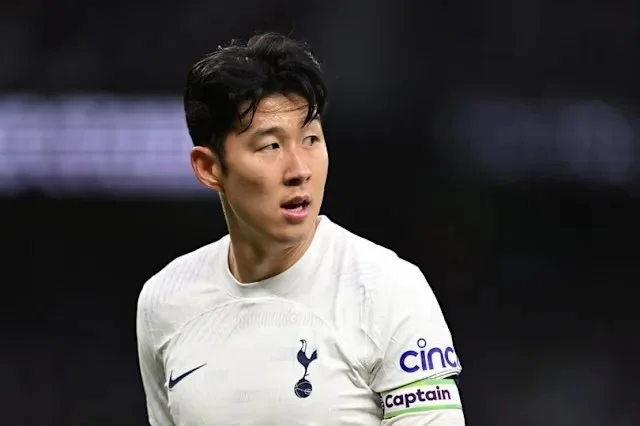20. Loyalty or conformity?
When the echo breaks
This morning, I watched a Premier League YouTube video. One of the hosts casually said Son Heung‑min wasn’t in his top ten all-time Tottenham players. His co-host added, almost offhand, that his father wouldn’t even put Son in the top thirty. I blinked. I paused the episode. Not because I disagreed, but because I’d never heard anyone say that before. Not once. I’d always heard him described as a legend, maybe top 1 or 2, at the last top five in club history..
To me, and to many Korean fans, he is a living legend: loyal, humble, world-class, and from a country, that has, at best, been considered second tier in global soccer. It’s like someone from the U.S. winning the Go or calligraphy competition year after year. The kind of athlete you don’t just admire. You feel proud of.
Recently, he joined LAFC, a team in Major League Soccer. Even the congresswoman of the district attended the press conference. His jersey sales skyrocketed. In most of the hundreds of YouTube channels by Korean creators, the past two years of Son’s decline were explained away—as the fault of other players’ incompetence or the manager’s misuse of him. So, the belief remains: he’s still in great form, and he’ll transform his new team and all of MLS. I believe this too. And I’m happy with that narrative.
So, I was surprised by the UK podcast. I did something rare. I went looking for the other side.
I found critical articles. Korean media had reported on his dip in form. English pundits had questioned whether the Premier League’s pace had outgrown him. Stats showed his scoring had slowed over the past two seasons. There were even discussions about whether Spurs should let him go. These views weren’t hidden. I just hadn’t seen them. Or maybe—I didn’t want to.
It’s tempting to blame algorithms or media filters. But this time, the real filter was me. I had accepted the narratives that fit how I already felt. I wasn’t in an information vacuum. I was in a comfort zone.
And here’s the harder part: even if I had seen those views, would I have accepted them? Or would I have dismissed them—“they don’t understand,” “they’re biased,” “he’s loyal, that’s what matters”? That’s how groupthink works. It gives you a story—and warns you not to let go.
Son, Heung-min
Groupthink and the pressure to conform in society
The Son example stayed with me because it wasn’t just about sports. It made me think about other moments when group-based thinking had shaped how people respond—not always consciously, but powerfully.
I thought about the waves of nationalist boycotts across East Asia. Chinese consumers boycotting Korean products over the U.S. missile defense system. Later, boycotting Japanese goods after diplomatic tensions. Tourism vanished. Sales crashed. These weren’t just economic decisions—they were expressions of collective identity. If you don’t follow the group, you risk being seen as against it.
You could call it patriotism. Or protest. Or just the human instinct to stay close to the herd.
And yet, if we don’t step back, don’t we risk outsourcing our thinking entirely?
When our opinion diverges from the group, there’s a jolt. A quiet feeling that says: you’ve crossed a line. I’ve felt that in corporate meetings. In cultural circles. Even with close friends. The quiet pressure to agree—to belong by aligning.
In some places, that pressure becomes punishment. In U.S. politics, stepping out of the party line can mean losing influence or your seat. In Asian cultures, dissent can be seen as arrogance or disloyalty. So groupthink thrives—not because everyone agrees, but because the cost of disagreement feels too high.
Loyalty and conformity
Including Son, we admire and adore superstars who’ve stayed with one team for a long time. We celebrate their loyalty, not just their talent, but their commitment to something bigger than individual gain. One of the commentators in the YouTube channel I cited in the introduction said he would rank Son above Harry Kane despite Kane being Tottenham’s all-time top scorer because Son stayed when the club lost Kane. He stayed when he could’ve left for a bigger team with more money. And he gave his best when the club needed him most.
I also put loyalty high on my list of values. For me, loyalty means sharing my intention and vulnerability, sometimes not hesitating to show too much emotion. It means letting my manager know that I would leave the company in four months so that we could create a good transition plan even though this information could lead to my immediate termination. It means waiting for them longer than usual. I think about my clients, peers, and team members long after our formal relationship ends. I feel honored and beyond joyful reconnecting with them later. I feel naive, stupid, and proud thinking of my loyalty.
In leadership, this gets even trickier. Loyalty to a team or a mentor can make it harder to voice disagreement, push for change, or walk away when it’s time. Without realizing it, loyalty can become a reason to stay silent—or to hold on too long to something that’s already shifting.
Is loyalty different from conformity? I believe it is. But it’s not always easy to tell the difference.
The philosopher Hannah Arendt wrote that conformity is often driven by fear of exclusion, of judgment, of being seen as different. It leads people to obey norms without thinking critically. Erich Fromm, too, warned that in modern society, people escape freedom through “automaton conformity” aligning with the expectations of others to avoid inner conflict. In contrast, loyalty, as explored by Josiah Royce, is a moral commitment. It involves devotion to a cause or a person, even when that cause requires sacrifice or disagreement. Loyalty, in Royce’s view, is not about obedience. It’s about conscious allegiance to something you deeply value.
Seeing these distinctions, I feel it more clearly: Conformity silences difference. Loyalty, at its best, makes space for it. Conformity demands sameness. Loyalty invites trust—the kind of trust that says, “I see it differently, and I still stand by you.”
I think many Asian Americans carry strong instincts toward loyalty. To family. To teachers. To managers. To institutions. It’s beautiful, and I honor it. But I also wonder: do we sometimes confuse loyalty with conformity? Do we stay silent—not because we trust, but because we fear disrupting the relationship?
Can we be loyal by standing firm, by staying present in both agreement and tension?
I admire Son Heung-min, his dedication, effort, character, which led to world-class success. But now I see more clearly: my admiration might have been shaped by echoes. I would like to be loyal to see him throughout his transition in the soccer career or beyond that.

